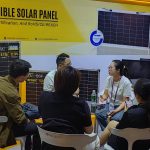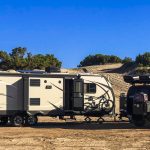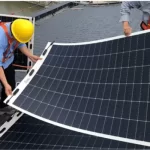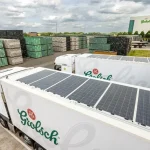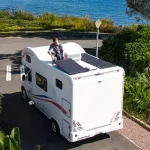Table of Contents
In the midst of designing a high-capacity solar power system, the choice between 24V and 48V solar panels isn’t just a matter of preference—it’s a strategic decision that impacts the entire system’s efficiency and scalability. For professionals in the PV industry, the shift towards 48V systems is driven by technical advantages that align with the demands of larger installations and more energy-intensive applications.
In the professional PV landscape, 48V solar panels are the preferred choice for high-capacity systems due to their ability to minimize energy loss, optimize system design, and ensure greater compatibility with advanced inverters and charge controllers. These panels support larger arrays with fewer wiring and connectivity challenges, leading to improved overall system efficiency and reduced installation costs.
In this article, we gathered all-inclusive information about 48V solar panels that will aid in the solar power system buying decision.
What are the 48v solar panels?
If you want to get the most out of your home solar energy system, you need to get 48 volt solar panels. If they don’t make panels in that voltage, you need to connect lower voltage panels together until the total voltage of the solar panels equals 48 volts.
So, here’s the deal. You can’t confuse a 48v solar panel with a 48-watt solar panel. Just remember that the power of a panel is measured in watts and that is equal to the voltage times the current. So, a 48v solar panel is going to make more power than a 12v or 24v solar panel. The PV modules that are rated at 48 volts are the most powerful. Now, that’s not why you need to go out and buy a 48-volt solar system right now. Whether you get a 48-volt solar system or not is completely up to you and it’s your decision whether to get one or just stick with 24-volt panels
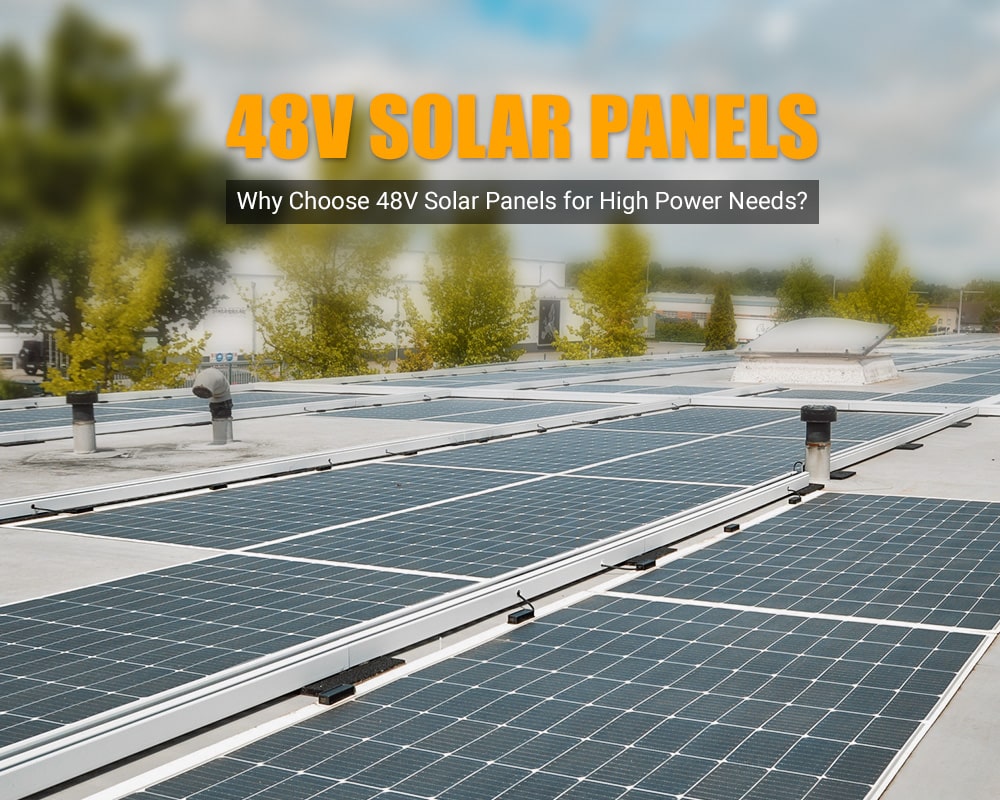
Understanding Nominal Voltage in Solar Panels
Before we dive into the nitty gritty of 24V and 48V systems, let’s first understand the concept of “nominal voltage.” Solar panels are often sold with a nominal voltage of 12V or 24V, which means they can charge a 12V or 24V battery bank all by themselves. This nominal voltage is important because it helps you design your system and choose the right components to make sure you’re producing and storing energy efficiently.
Nominal Voltage vs. What You Actually Get: A single 100W panel, even though it’s rated at 12V, can actually put out about 20V (open circuit voltage) and works best at about 18V. That’s enough to charge a 12V battery bank, but not enough for a 24V system. For a 24V battery bank, you need a panel with a nominal voltage of 24V or, alternatively, two 12V panels wired in series to effectively double the voltage.
The Distinct Advantages of 48V Solar Systems
48V solar systems are the big boys in the world of high-capacity energy solutions, offering a handful of advantages that cater to more demanding energy requirements:
More Efficient, Less Wasted Energy: 48V systems waste less energy over distance compared to 12V systems. This is because higher voltage means lower current flow, which means less resistance loss in the wiring. If you’re covering a big area or running long cables, 48V systems make sure you’re using more of the energy you generate instead of just turning it into heat.
Works Well with High-Power Applications: When you get into larger solar installations, you need more power. The 48V systems are perfect for that. They work great for commercial installations, big residential buildings, or off-grid setups where you need a lot of power. You can put in bigger inverters and more sophisticated charge controllers to manage the power coming in and going out.
Less Wiring: With higher voltage systems, you can use smaller gauge wire to transmit power, which reduces the cost and complexity of the wiring infrastructure for your solar array. This makes installation simpler and reduces the physical and aesthetic impact of the system.
When to Opt for 12V Solar Systems?
24V systems are great for medium-sized solar setups. They’re the perfect middle ground between small, personal projects and big, high-demand installations..
Efficiency and Scalability: A 24V system gives you a nice balance between efficiency and scalability. It’s more efficient than a 12V system because it has lower amperage, which means less energy loss over distance and the ability to use thinner, less expensive wire. This makes it perfect for residential and small commercial setups that need a moderate amount of power.
Portability and DIY Projects: What I like about 12V systems is that they’re a favorite among DIY enthusiasts and those who need portable or temporary solar setups. They’re easy to design, install, and modify, which appeals to hobbyists and professionals working on small-scale or mobile projects.
Cost-Effectiveness for Smaller Budgets: If you don’t have much money to spend, a 12V system is a great choice. Because 12V systems have lower voltage and power requirements, the batteries, inverters, and charge controllers are cheaper. If you’re on a budget or just getting started with solar, 12V systems are more accessible and affordable.
the 48V system is more efficient, scalable, and has less energy loss. On the other hand, 12V systems are great if you want something simple, portable, and cheap. They’re a great starting point and perfect for smaller energy needs. By understanding the differences between the two, you can make an informed decision to get the solar setup that works best for your situation.
Batteries suitable for 48v solar panels
All the batteries we sell work with 48v solar panels; only the capacity and brand may vary. Compare the battery specifications to your 48v solar panel before you buy one from us.
48v solar panels connection
There are a few different ways you can wire multiple solar panels together, depending on your specific situation.
In parallel
In parallel, you use a branch connector and a combiner box. Special design devices, for example, in parallel, are used to be joined with one’s positives to the other’s negatives. All the negative terminals are connected to one connector, and the positives are connected to the other.
With this connection, the voltage of every solar panel stays the same. Afterward, the panels amperage together is summarized. This allows you to increase the amperage for the whole solar power system without adding to the voltage. For example, in a 48V solar panel system, when you use parallel wiring, this allows the voltage to stay at 48 Volts.
In series
The negative terminal of one solar panel is connected to the positive terminal of the other panel, and so on.
With this type of wiring, the voltage of all panels adds up. So does the amperage of the system, and it equals the lowest amperage of the panel. This means you can never connect solar panels of different values of maximum current in series, as it will not work correctly.
Series-parallel
And these connections are all hooked up to those previous. This is how you wire solar panels so you can control the voltage and amperage going into your solar power system to get the best performance out of it. For example, if you have a 48-volt solar system, you can put a charge controller on it that has a relatively low maximum voltage rating in case you want to add more current. With series-parallel connections, you wire your solar panels in series and then wire those series strings in parallel.
Choosing the best 48v solar panel can be tricky
Just like with any solar panel, there are a few important things you need to know before buying a 48V solar panel. All the 48V solar panels for sale are different in the following ways:
* Efficiency
* Power tolerance
* Low-temperature * coefficient and performance in low irradiance
* Warranty
* The type of solar cells
* Price


